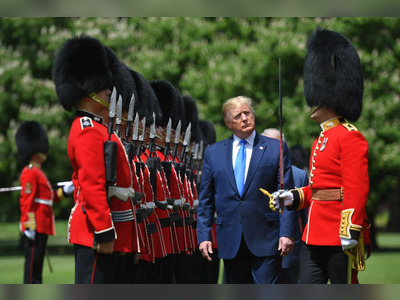Japanese Prime Minister Vows to Stay After Coalition Loses Upper House Majority
Shigeru Ishiba cites pressing national issues as reason to remain in office amid inflation, U.S. trade tensions, and party setbacks
Japanese Prime Minister Shigeru Ishiba has confirmed he will remain in office following his governing coalition’s loss of its majority in the upper house of parliament during recent national elections.
Speaking after the results, Ishiba acknowledged the outcome as a harsh judgment by voters but cited unresolved economic and security issues as justification for staying on.
The defeat follows two earlier setbacks for the ruling Liberal Democratic Party (LDP): the loss of control in the more powerful lower house in October and recent losses in Tokyo's metropolitan elections.
The latest upper house result adds to internal party pressure on Ishiba, whose leadership has been challenged amid mounting public dissatisfaction over economic conditions and corruption scandals.
Japan is currently experiencing inflation above three percent, with rising food and energy prices drawing criticism from opposition parties.
Proposed solutions have included a potential cut to the national consumption tax to ease cost-of-living burdens.
However, economists warn such a measure could weaken funding for social security in a country with an aging population, reduce government revenue, and expand Japan’s public debt, which already exceeds two hundred and sixty percent of gross domestic product.
Trade relations with the United States have also come under renewed stress.
Japan faces the threat of a twenty-five percent tariff on its automotive exports and additional levies on other goods.
These external economic pressures are compounding domestic concerns about stagnating wages and high living costs.
The election outcome also highlighted a noticeable rise in support for far-right nationalist parties.
Although Japan's opposition remains fragmented and unlikely to form a government, parties like Sanseito have gained traction by campaigning on issues such as immigration, particularly from China.
Political analysts have noted that voter demographics may be shifting, with younger Japanese increasingly turning away from traditional parties in search of alternative leadership.
Despite historical support for stability and continuity, recent results suggest growing openness to political change.
Within the LDP, speculation has intensified over whether Ishiba will remain leader amid calls for a more assertive figure to negotiate Japan’s position in international trade talks.
Potential successors mentioned include more hawkish candidates associated with Prime Minister Shinzo Abe.
Formal coalition talks, economic policy adjustments, and intra-party leadership debates are expected to follow in the coming weeks as Japan navigates a period of heightened political and economic uncertainty.
Speaking after the results, Ishiba acknowledged the outcome as a harsh judgment by voters but cited unresolved economic and security issues as justification for staying on.
The defeat follows two earlier setbacks for the ruling Liberal Democratic Party (LDP): the loss of control in the more powerful lower house in October and recent losses in Tokyo's metropolitan elections.
The latest upper house result adds to internal party pressure on Ishiba, whose leadership has been challenged amid mounting public dissatisfaction over economic conditions and corruption scandals.
Japan is currently experiencing inflation above three percent, with rising food and energy prices drawing criticism from opposition parties.
Proposed solutions have included a potential cut to the national consumption tax to ease cost-of-living burdens.
However, economists warn such a measure could weaken funding for social security in a country with an aging population, reduce government revenue, and expand Japan’s public debt, which already exceeds two hundred and sixty percent of gross domestic product.
Trade relations with the United States have also come under renewed stress.
Japan faces the threat of a twenty-five percent tariff on its automotive exports and additional levies on other goods.
These external economic pressures are compounding domestic concerns about stagnating wages and high living costs.
The election outcome also highlighted a noticeable rise in support for far-right nationalist parties.
Although Japan's opposition remains fragmented and unlikely to form a government, parties like Sanseito have gained traction by campaigning on issues such as immigration, particularly from China.
Political analysts have noted that voter demographics may be shifting, with younger Japanese increasingly turning away from traditional parties in search of alternative leadership.
Despite historical support for stability and continuity, recent results suggest growing openness to political change.
Within the LDP, speculation has intensified over whether Ishiba will remain leader amid calls for a more assertive figure to negotiate Japan’s position in international trade talks.
Potential successors mentioned include more hawkish candidates associated with Prime Minister Shinzo Abe.
Formal coalition talks, economic policy adjustments, and intra-party leadership debates are expected to follow in the coming weeks as Japan navigates a period of heightened political and economic uncertainty.









